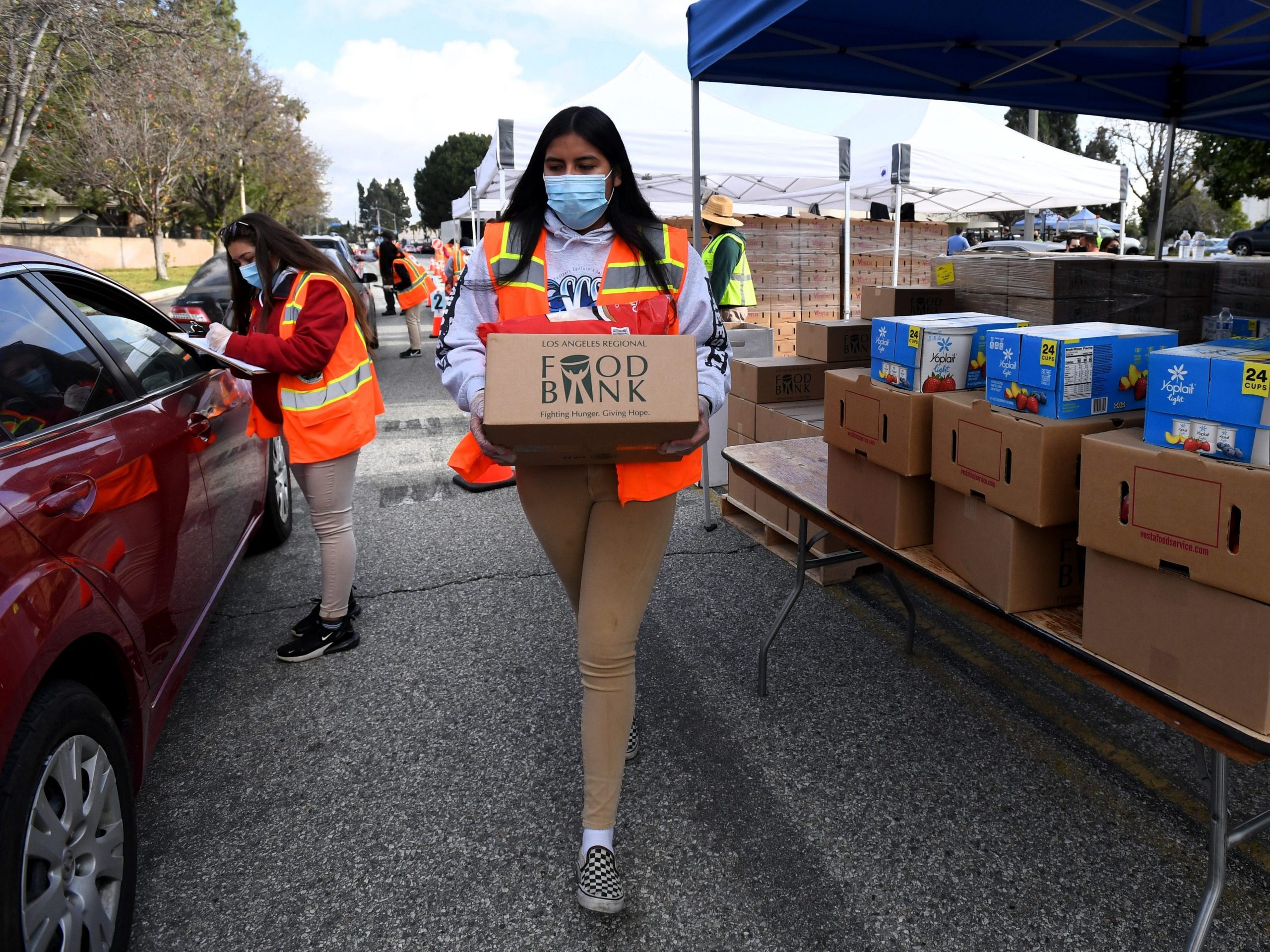
- A lack of access to healthy food may make it harder to lose weight, even with diet and exercise.
- People with obesity lost less weight in an intensive program if they had food insecurity, a study suggests.
- Economic instability from the pandemic may make this disparity even starker, a researcher said.
- Visit Insider's homepage for more stories.
Lack of access to healthy food could make it harder to lose weight, even if you're on an intense diet and exercise program, according to a study published March 8 in the Annals of Internal Medicine.
Researchers from Pennington Biomedical Research Center looked at data from 803 patients with obesity in Louisiana who underwent a two-year weight loss trial.
Just over half of them were assigned to an intensive diet and exercise program, with regular counseling sessions, meal plans, and tips to include more regular physical activity. The rest received general healthcare advice and regular checkups from their doctors.
Unsurprisingly, the intensive program group lost more weight by the end of the study that the control group.
But in both groups, people with obesity who faced food insecurity lost less weight than their peers who had consistent access to healthy food.
That suggests that any public health efforts to address rising obesity rates should consider how food insecurity might be a barrier to weight loss.
"It's a health disparity issue," Dr. Candice Myers, lead author of the study and an assistant professor at Pennington, told Insider. "Thinking about weight loss as a health equity issue, the chance to achieve a healthy weight may not be something that everyone has access to."
There's little research on how food access affects weight loss
Prior to Myers' study, there has been scarce evidence on food insecurity and weight loss.
It's known that food insecurity - defined as lack of consistent access to healthy food - is linked to higher body weight and greater risk of obesity.
There have also been very few studies that directly examine how food insecurity might affect weight loss.
"There's not a lot out there, especially not in the context of a randomized clinical trial," Myers said.
A lower-quality diet and risk of going hungry could make it harder to adopt healthy eating habits
We don't yet have evidence explaining why food insecurity can make it harder for some people to lose weight, although there are plenty of theories, including social, psychological, and physiological factors.
One is that a tighter food budget leads to a lower-quality diet. Processed food tends to be cheaper and more convenient than many healthier options (such as fresh produce, lean meats, etc), but is linked to health risks including obesity.
"If we think about food insecurity, it has a direct impact on what people eat and how they eat. It's an issue of food quantity and quality," Myers said.
It's also possible that weight loss is less of a priority for people who are concerned about keeping themselves and their children from going hungry.
"Asking someone to think about their weight may be a struggle if every day they're just thinking about putting food on the table, and providing for their family," Myers said.
Psychological and physiolocial factors may also stall weight loss for people with food insecurity
People of lower socioeconomic status are also at risk of psychological factors such as stress, depression, and anxiety, all of which can stymie weight loss. There's even some evidence that physiologically, people who don't have consistent access to food might tend to hold on to weight (and body fat) as a survival mechanism, Myers said.
She added that it's likely a combination of factors that ultimately make it difficult for people with food insecurity to lose weight. The next steps for research will be to figure out how this works, and potentially offer weight loss programs to better help people in need.
"The biggest question for us is why food insecurity can reduce or prohibit weight loss," Myers said. "The goal would be to take what we find and develop it to inform future weight loss interventions."
The pandemic worsened disparities in food access and health
What we do know is that COVID-19 has highlighted many of these health disparities. People with obesity are more likely to have severe cases of COVID-19 and are less likely to qualify for a vaccine than people with other chronic conditions, Insider previously reported.
The economic impact of the pandemic has also made it even harder for people to afford healthy food, worsening the risk of obesity (and related complications) for those who already struggle with barriers to weight loss.
"It's a bit of a double whammy," Myers said. "We see food insecurity has been driven up as the result of the pandemic, and people who have struggled with food insecurity are experiencing it more intensely."